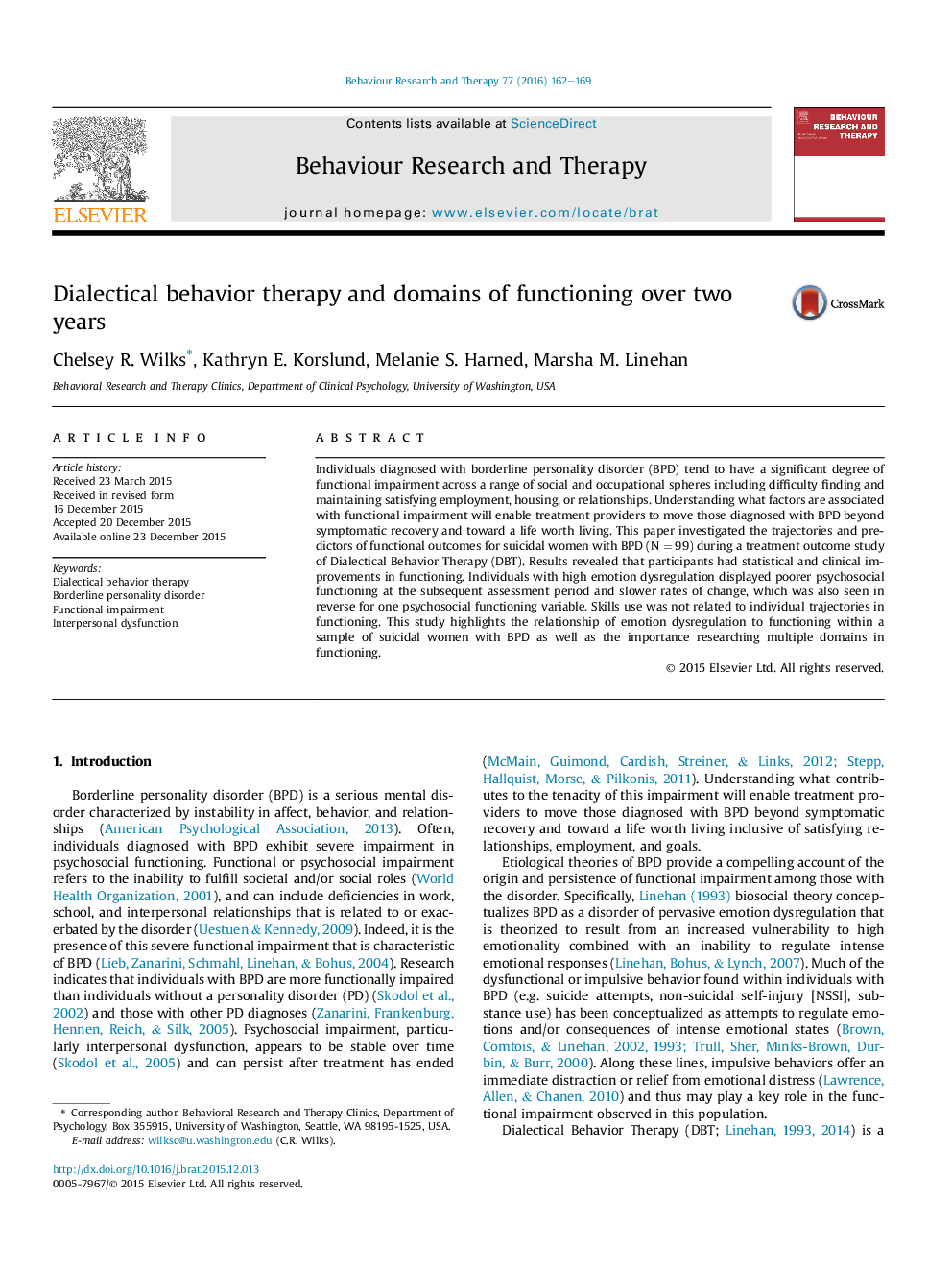| Article ID | Journal | Published Year | Pages | File Type |
|---|---|---|---|---|
| 901800 | Behaviour Research and Therapy | 2016 | 8 Pages |
•Clients in DBT had statistical and clinical improvements in functioning.•Individuals with low emotion dysregulation had better prospective functioning and faster trajectories.•Individuals with more skills had better prospective functioning.•Individuals with higher functioning had lower emotion dysregulation more skills.
Individuals diagnosed with borderline personality disorder (BPD) tend to have a significant degree of functional impairment across a range of social and occupational spheres including difficulty finding and maintaining satisfying employment, housing, or relationships. Understanding what factors are associated with functional impairment will enable treatment providers to move those diagnosed with BPD beyond symptomatic recovery and toward a life worth living. This paper investigated the trajectories and predictors of functional outcomes for suicidal women with BPD (N = 99) during a treatment outcome study of Dialectical Behavior Therapy (DBT). Results revealed that participants had statistical and clinical improvements in functioning. Individuals with high emotion dysregulation displayed poorer psychosocial functioning at the subsequent assessment period and slower rates of change, which was also seen in reverse for one psychosocial functioning variable. Skills use was not related to individual trajectories in functioning. This study highlights the relationship of emotion dysregulation to functioning within a sample of suicidal women with BPD as well as the importance researching multiple domains in functioning.
